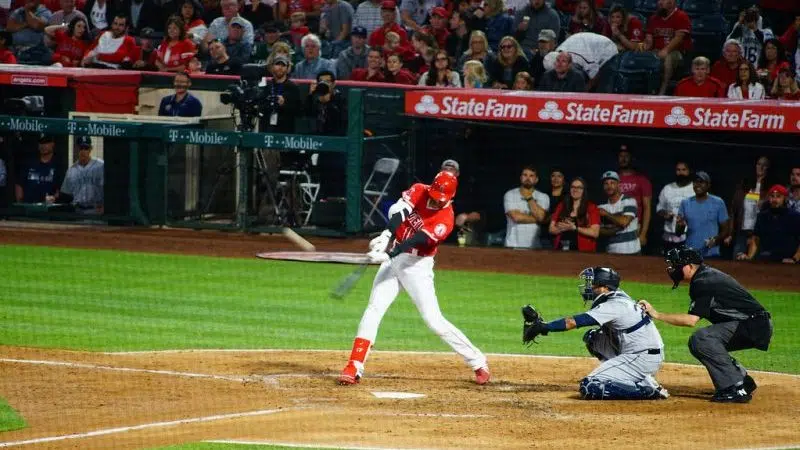Major League Baseball (MLB) player Shohei Ohtani has taken the league by storm in the 2021 season, leading the league in home runs and ranking third in runs batted in.
There is something different, however, about Ohtani compared to the great players before him.
Besides his ability to pitch and hit at an All-Star level, Ohtani chooses to use an interpreter when speaking in public situations.
Ohtani isn’t the first baseball star to come from his home country of Japan and use an interpreter. Many baseball fans will remember Ichiro Suzuki coming to the United States and choosing the same way to communicate, even if he could speak English.
Dr. Joshua Dickhaus, Associate Professor of Communication and Director of Charley Steiner School of Sports Communication at Bradley University, said Ohtani is at a different status in the U.S. than Suzuki reached in his career.
“When you start thinking of those sort of phenoms — like David Beckham when he was signed — but he speaks English,” said Dickhaus. “I can’t think of [an athlete] off the top of my head that has been so captivating but didn’t speak English.”
ESPN’s Stephen A. Smith made controversial comments on Monday about Ohtani’s language, saying it wasn’t good for the sport.
“I don’t think it helps that the number one face is a dude that needs an interpreter, so you can understand what the hell he’s saying in this country,” said Smith.
Smith’s comments sparked a conversation about whether or not Ohtani would need to speak English to become more “marketable” in the American market.
Smith has since apologized for his comments.
According to Dickhaus, Ohtani’s biggest obstacle in being marketable in the U.S. isn’t his language.
“I think his biggest problem, honestly, is that he plays baseball in America,” said Dickhaus. “It also does not help that he plays for a California team because it’s West Coast. A lot of people on the East Coast and Midwest are asleep by the time they play their games.
“We haven’t seen a real bonafide baseball star captivate American attention in awhile. There’s been a lot more focus on football and basketball.”
While Ohtani’s play on a baseball field may be enough to captivate the general American public, he may need to branch out into other forms of media, according to Dickhaus.
“He has the complete ability to captivate the general public through his play,” said Dickhaus. “If he wants to financially capitalize on it in America, he may need to do commercials, unless he gets paid to wear a particular brand.
“To capitalize on his fame, I’m guessing if he really wanted to — he may have to do some commercials to realize his full financial potential.”
This isn’t the first time, according to Dickhaus, where we’ve seen such an incident in American media.
“There was a lot of racially insensitive things said about Jeremy Lin,” said Dickhaus. “I know one ESPN.com writer got fired for a very unfortunate title to an article after Lin had his first bad game.”
In another scenario, Dickhaus said the Ladies Professional Golf Association (LPGA) attempted to pass a “you must speak English” rule to compete, but was shot down within days.
“A lot of [the LPGA] dominant players are from Asian countries, and it was essentially them trying to recapture their league by banning people who didn’t speak English,” said Dickhaus. “What Smith said was unfortunate — he did apologize.
“I also don’t find what he said [about Ohtani] to be accurate. I think if this man is the best player in MLB — he will get attention and popularity and people will want to follow him.”
According to Forbes, Ohtani has more endorsements than any other player in baseball, largely because he has become a star on two continents.
In Japan, he has deals with Asics, JAL Airlines and Seiko Watch. In the U.S., Ohtani is currently endorsed by Fanatics, Oakley and Topps.
Earlier this week, Ohtani became the first player ever to start an All-Star game as a pitcher and bat first for his team in the same game.




